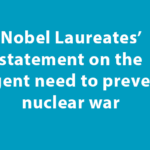By Dave Lawler
India and Pakistan are sliding toward potential nuclear war, according to the president of Pakistani-controlled Kashmir. The warning comes as Pakistan attempts to rally global outrage against its neighbor and rival.
Catch up quick: On Aug. 5, India revoked the constitutional autonomy of Jammu and Kashmir — the state it controls within the disputed Himalayan territory — while instituting a communications blackout and a curfew enforced by hundreds of thousands of troops.
- Both India and Pakistan claim Kashmir, partially control it and have gone to war to defend their claims. The sudden move to fundamentally change the status of Indian-controlled Kashmir enraged Pakistan.
- Where things stand: Michael Kugelman of the Wilson Center tells Axios that while conditions vary across the state, “you still have a lockdown in effect, you still have a communications blackout in effect and you still have a number of people detained, including local political leaders.”
Masood Khan, the president of Azad Kashmir and a longtime Pakistani diplomat, told Axios this week in Washington that India’s actions constitute a “declaration of war,” not just against the local population but also against Pakistan.
- He echoed claims by Imran Khan, Pakistan’s prime minister, that there will be “massacres” of civilians once the lockdown is lifted. But he went a step further, warning the ensuing escalation could result in a nuclear exchange.
The other side: Indian Foreign Minister Subrahmanyam Jaishankar last week said the special status of Jammu and Kashmir — India’s only Muslim-majority state — “was meant as a bridge that became a barrier.”
- He argued that the state’s autonomy cut it off economically and politically, limiting development and thus spurring alienation and separatism.
- Jaishankar accused Pakistan of exacerbating that separatism by creating “an entire industry of terrorism for dealing with the Kashmir issue.”
- As for the lockdown, Jaishankar said he’d rather Kashmiris go without internet than lose their lives in potential unrest.
While Jaishankar downplayed the severity of the lockdown and insisted it was being gradually loosened, Masood Khan accused India of “brutalizing” Kashmiris.
- He predicted “asymmetric resistance” from the local population and warned that many on the Pakistani side of the Line of Control (LoC) were anxious to join the fight.
- Khan said the government had “no intention” of sending fighters across the LoC, but warned that the anger would be “difficult to control.” He said direct intervention by the Pakistani military could also not be ruled out.
The big picture: Pakistan is attempting to focus the eyes of the world on Kashmir in part by framing it not just as a human rights issue, Kugelman says, but also a global security threat.
- International criticism of India so far has been focused on the lockdown rather than the constitutional change, and hasn’t come with pressure for negotiations on Kashmir’s long-term status.
- Thus, Kugelman contends, “India has really come out on top here in the battle of narratives.”
Masood Khan conceded that President Trump effectively “endorsed” India’s crackdown at a rally in Houston on Sep. 22, during which he praised Prime Minister Narendra Modi’s efforts on “border security.”
“When Modi and Donald Trump were holding hands together in Houston at the Howdy Modi rally, Modi was seeking endorsement of the actions he had taken in Kashmir from the most powerful nation on Earth.”
Khan concedes that Modi got his endorsement.
- He says Trump was motivated by “realpolitik,” given the importance of the U.S.-India relationship, and assurances from India that they could handle the situation.
- Trump had previously offered to mediate the Kashmir dispute, a proposal backed by Pakistan but fiercely opposed by India.
- Despite Trump’s attempts to “play both sides,” Kugelman says, the long-standing U.S. policy is to treat Kashmir as a bilateral matter to be worked out by India and Pakistan.
What to watch: India recognizes that as soon as it lifts the lockdown, the “prospects for violence and threats to the lives of Indian security forces escalate significantly,” Kugelman says. Thus, he wouldn’t be surprised if it’s still in place in another 2 months.
Source: https://www.axios.com/kashmir-crackdown-india-pakistan-nuclear-war-3624ea97-8252-4d25-8b56-4056740524c7.html


